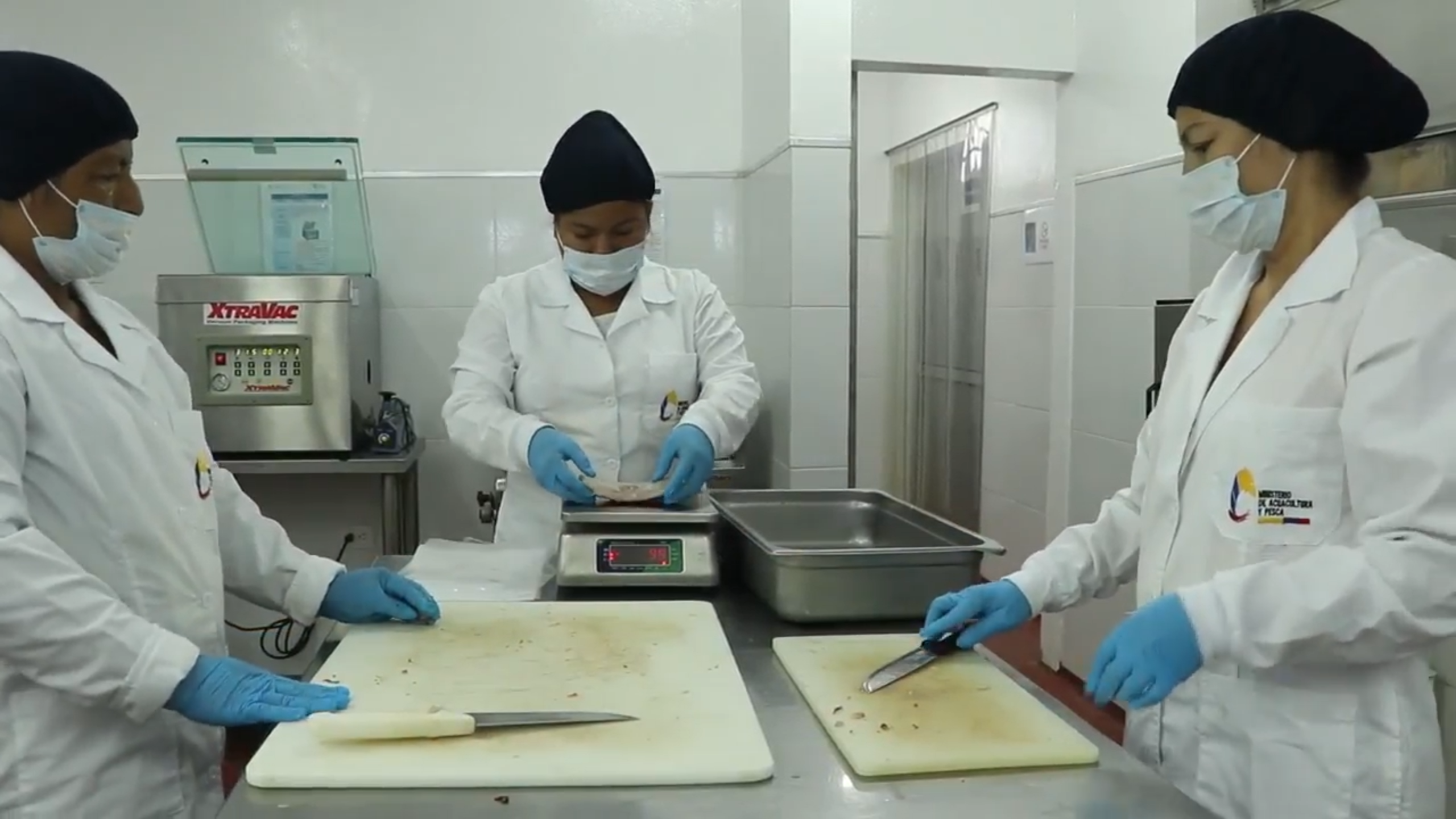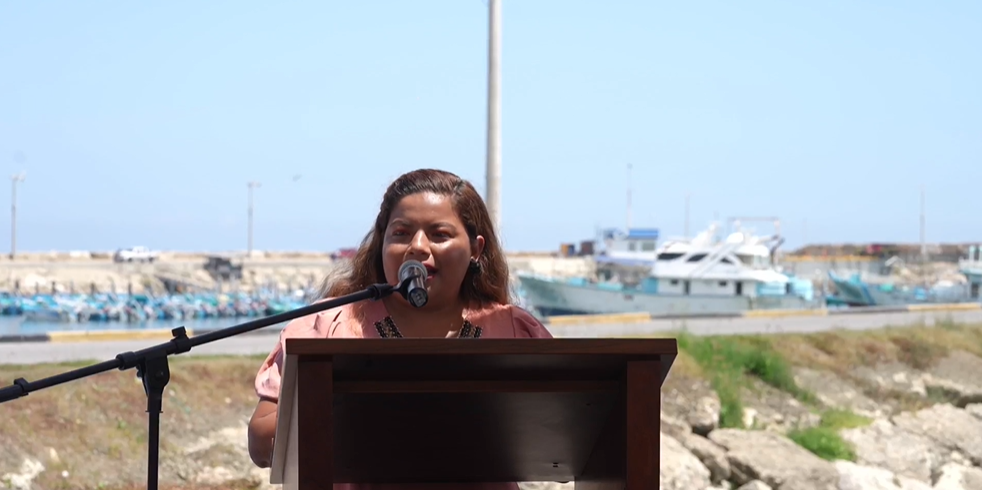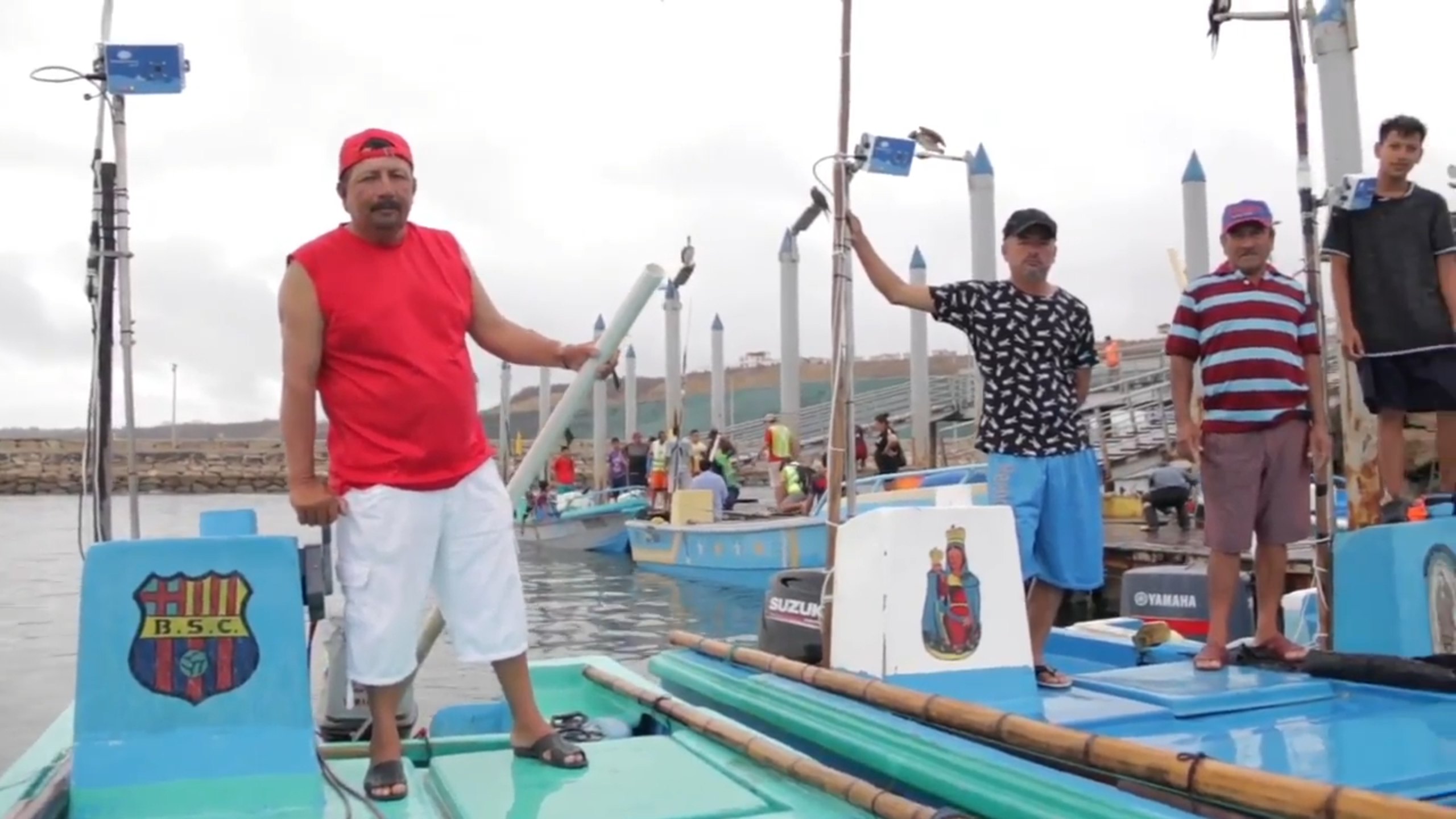Ecuador: a small-scale fishing community pioneers traceability for sustainability
"Behind every fish there is a story. As consumers of marine resources, we must know where those resources come from" - message from a seafood processor in Ecuador
29/11/2023

Lima/Rome/San Mateo, 29 November - Mahi-mahi, also known as dolphinfish, dorado or perico, is an essential resource for artisanal fisheries in Ecuador. Thousands of families depend on this fish species for their food and livelihoods, with 4 666 small boats and 223 larger tow boats working the artisanal mahi-mahi fishery.
However, mahi-mahi stocks are under pressure from overfishing and ecosystem degradation. One way to revert these harmful trends is to support sustainable fishers.
Sustainable fishing is harder work and takes longer than non-sustainable fishing: for example, a responsible fisher will refrain from going out to sea during closed seasons and will use environmentally friendly gear, such as a pole and line, that doesn’t threaten other biodiversity in the sea.
It is therefore essential that responsible fishers be able to reap the economic rewards of respecting the environment and allowing the fish time to reproduce themselves.
One way to do this is through traceability, or the ability to trace a product from the point of sale to its point of origin. Traceability can lead to MSC or Fair-Trade certifications on labels for responsibly caught seafood, which means sustainable fishers can command better market prices, and consumers can make informed choices.
Joining forces with small-scale fisherfolk for traceability
To demonstrate how traceability can help sustainable fishers make a better living, the Coastal Fisheries Initiative in Latin America (CFI-LA) joined forces with the 20 de Septiembre Cooperative, which is made up of 65 artisanal mahi-mahi fishers.
Together, they carried out a pilot project in the San Mateo Cove settlement, where 90 percent of the community is dedicated to artisanal fishing and related activities.
Traceability is based on reliable data about the size, quantity and location of the fish being caught, and this was lacking at the San Mateo landing site in the past.
To remedy this situation, the pilot project worked with the community to install cameras and electronic logbooks on the fishing boats to create a virtual monitoring system for mahi-mahi.
In comparison to analog traceability systems, this technology gave the fishers access to real-time information on their operations and landings. It also allowed them to have an updated digital database, which is key not only to document the health of the target species but also to know the impact on secondary and protected species.
The information was stored in QR codes, which guarantee the traceability of the mahi-mahi to the final consumer. Most importantly, they create a link between fishers and consumers: through the QR code, they can learn about the origin of the fish as well as the stories of the fishermen, fisherwomen, and seafood processors who worked to bring it to their plate.
The pilot project involved local youth, as many of the fisherfolk's sons and daughters joined in to support their parents in installing the innovative virtual monitoring technology on their artisanal boats. In addition, it helped promote equal opportunities for women and men by offering technical training in seafood processing to add value to their mahi-mahi catch.
"The pilot motivated men and women to work together and unite for a common cause: responsible artisanal fishing with fair prices," said Fernando Rey, a specialist from WWF Ecuador, which implemented the pilot project in San Mateo.
The San Mateo fishing community, a pioneer in the region
Cinthia Conforme is the daughter of a San Mateo fisherman and is active in training and empowering the women and youth of her community.
"Before, the fishermen and fisherwomen of my community couldn’t get decent prices for their catch,” Cinthia said.
"Thanks to the pilot project, we were able to access a responsible fishing market with fair prices. We did so by using the new traceability technology, and by forging alliances with local restaurants,” she explained.
The success of the mahi-mahi traceability pilot project belongs to the San Mateo community: as a pioneer in the region, it proved the viability of a virtual monitoring system with new technologies on artisanal vessels. It also made visible the important role played by women and youth in the development of a modern, responsible small-scale fishery in Ecuador.
About CFI-LA
CFI-LA strives for the sustainable use of aquatic resources for the benefit of people and environment in the coastal waters of Ecuador and Peru, which are rich in biodiversity.
It is implemented by the United Nations Development Programme (UNDP) in collaboration with Conservation International (CI) and the Worldwide Fund for Nature (WWF), in partnership with national governments and local communities.





